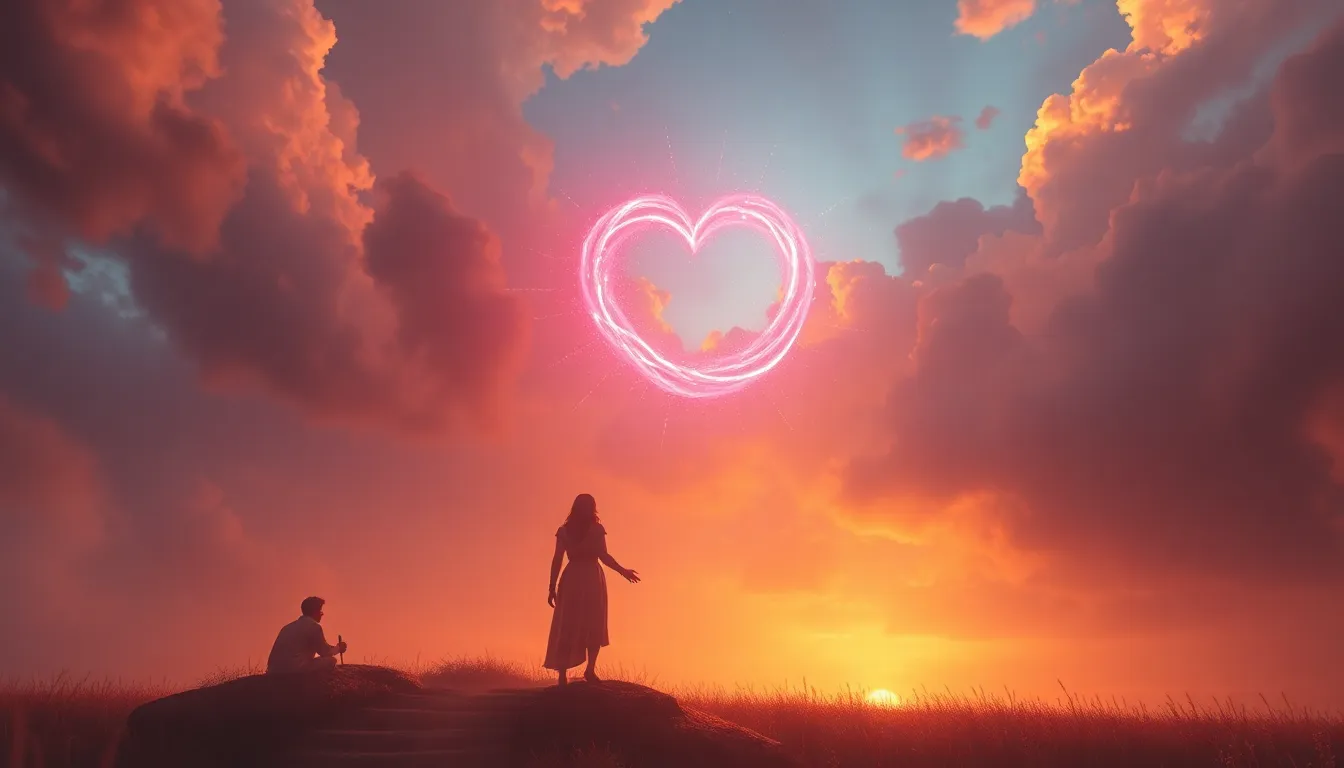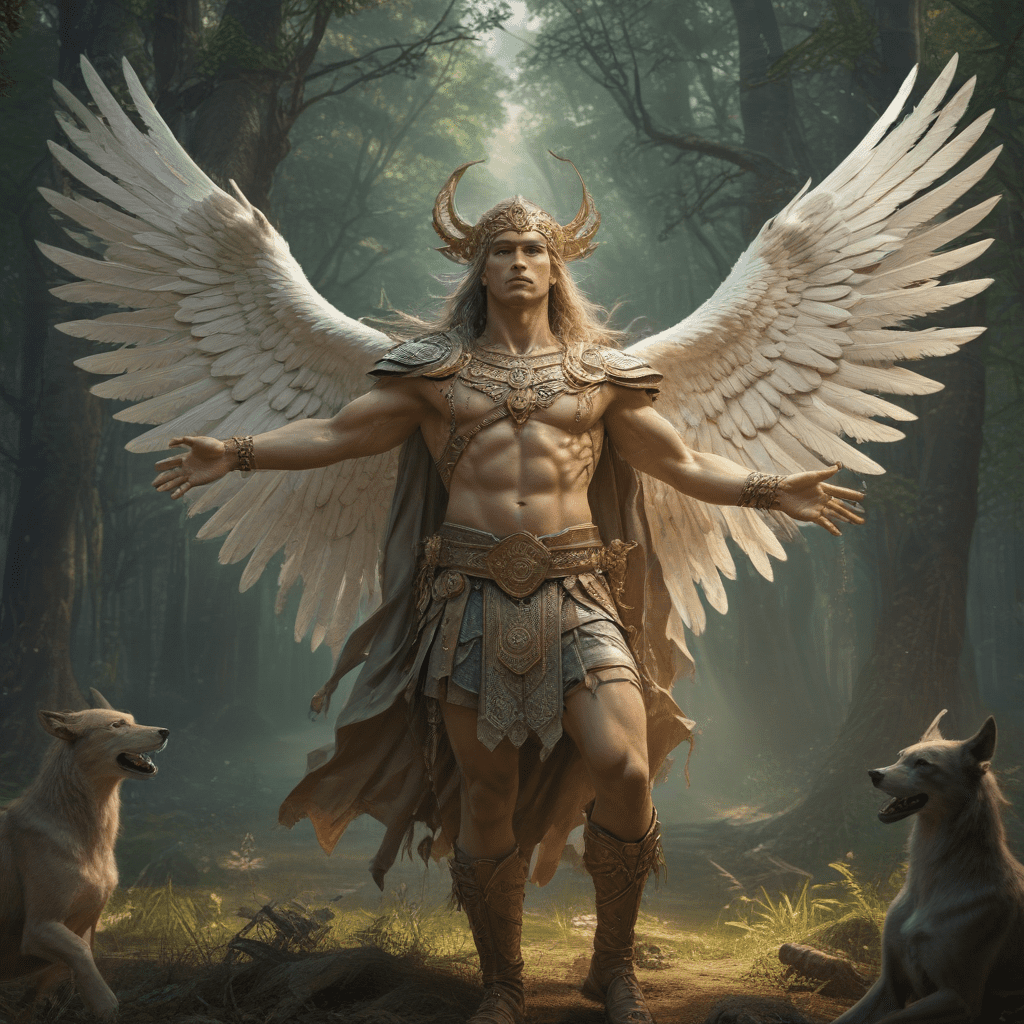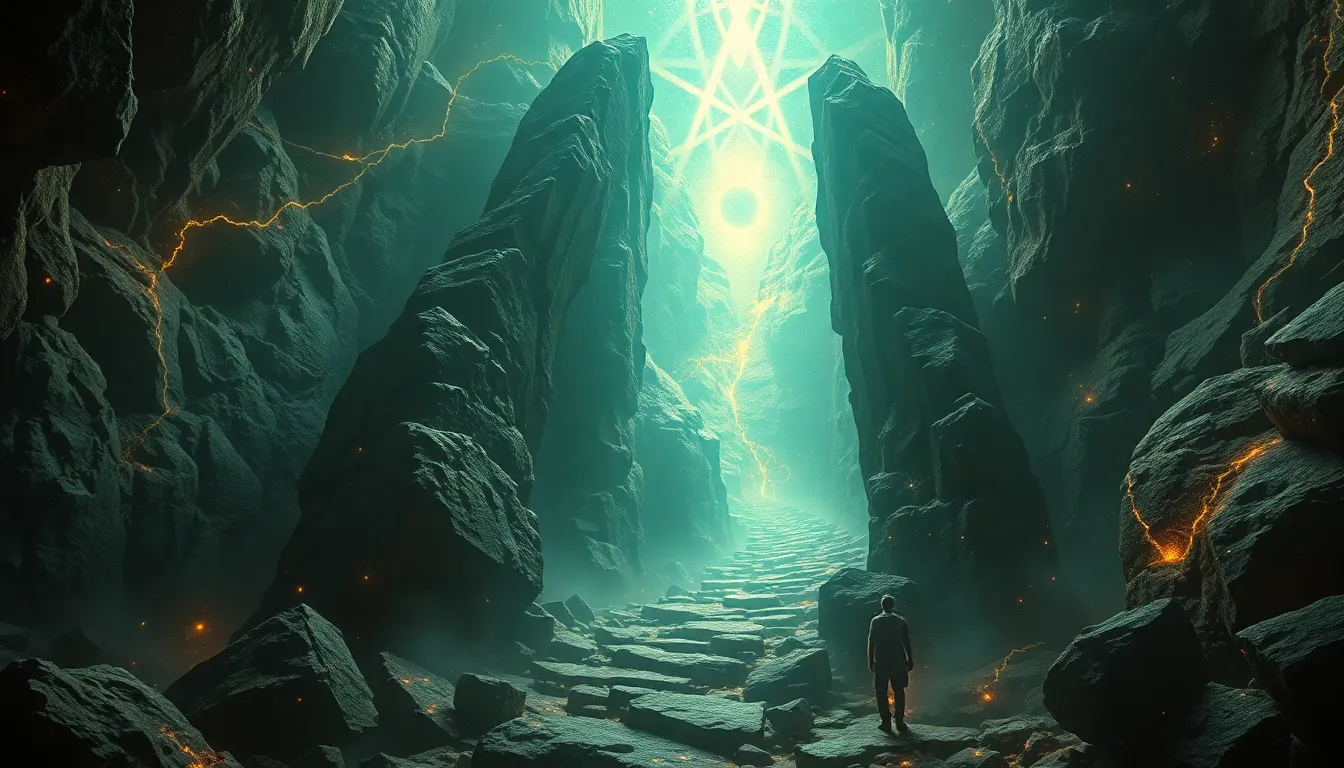The Heart’s Journey: Epic Quests for Love in Mythology
Introduction: The Universal Quest for Love
Love, an emotion as old as humanity itself, has always been a central theme in mythology. Across cultures and ages, stories of love have captivated audiences, illustrating the profound connections that bind individuals together. Mythology provides a rich tapestry of narratives that delve into the complexities of love, often showcasing it as a powerful force that drives characters to embark on epic quests.
In the context of love stories, epic quests serve a significant purpose. They highlight not only the intensity of feelings but also the lengths to which individuals will go to attain or preserve love. This journey often reflects the struggles and triumphs inherent in human relationships, making these myths both timeless and relatable.
The Archetype of the Hero: Love as Motivation
The hero’s journey is a well-established archetype in mythology, characterized by a protagonist who embarks on an adventure, faces challenges, and ultimately achieves personal growth. In many instances, love acts as the primary motivator for these heroic quests.
Love can inspire individuals to:
- Overcome formidable obstacles
- Challenge societal norms
- Transform their identities
This connection between love and heroism underscores the notion that love can be a powerful catalyst for change, prompting individuals to embark on transformative journeys that redefine their lives.
Mythological Love Stories from Different Cultures
Mythology across various cultures is rich with love stories that have stood the test of time. Here are a few notable examples:
Greek Mythology: Orpheus and Eurydice
The tale of Orpheus and Eurydice is one of the most poignant love stories in Greek mythology. Orpheus, a gifted musician, descends into the Underworld to rescue his beloved Eurydice, who has died tragically. His journey is fraught with challenges, and despite the gods granting him a chance to bring her back, he ultimately loses her due to his inability to trust.
Indian Mythology: Radha and Krishna
In Indian mythology, the divine love between Radha and Krishna represents the ideal of love transcending the physical realm. Their relationship is characterized by deep devotion and longing, often depicted in poetry and dance. The trials they face embody the challenges of earthly love and the spiritual journey toward union.
Norse Mythology: Freyja and the Search for Love
Freyja, the goddess of love, beauty, and fertility, often finds herself in quests for love. One of her defining stories involves her search for her beloved husband, Óðr, who disappears. Her journey symbolizes the sacrifices made in the name of love, as she traverses various realms and faces numerous challenges to reunite with him.
Trials and Tribulations: Challenges Faced in the Name of Love
In mythological narratives, lovers often encounter significant obstacles as they pursue their desires. Common challenges include:
- Separation due to external forces (gods, fate, or societal constraints)
- Personal sacrifices and hardships
- Tests of loyalty and faith
These challenges symbolize deeper emotional struggles, reflecting the complexities of love and the human condition. They serve to illustrate that love is not merely a feeling but a journey filled with trials that can lead to personal transformation.
The Role of Fate and Destiny in Love Quests
The concepts of fate and destiny play a crucial role in many mythological love stories. In various cultures, love is often depicted as being preordained, with characters caught in a web of fate that influences their paths. This can lead to:
- Divine intervention that alters the course of events
- Tragic endings that emphasize the fragility of love
- Redemption arcs where characters learn to navigate their destinies
In this way, mythology often highlights the tension between free will and fate, showcasing how love can be both a blessing and a burden dictated by forces beyond one’s control.
Transformation and Growth: The Evolution of Characters
Epic quests for love frequently lead to significant personal growth and transformation. Characters often emerge from their journeys changed, having learned valuable lessons about themselves and their relationships. Examples include:
- Orpheus, who learns the importance of trust and acceptance
- Radha, who embodies the concept of unconditional love and devotion
- Freyja, who discovers the depths of her strength and resilience
This evolution not only enriches the characters’ lives but also deepens the narrative, illustrating how the pursuit of love can lead to profound self-discovery.
Symbolism and Motifs: Understanding Love through Mythical Elements
Mythological love stories are replete with symbolism and motifs that convey deeper meanings. Common symbols associated with love include:
- Flowers: Often symbolize beauty, growth, and the ephemeral nature of love.
- Animals: Certain animals, like doves or swans, represent fidelity and peace.
- Celestial bodies: Stars and moons often symbolize the eternal and guiding nature of love.
These motifs serve to enhance the narratives, providing layers of meaning that resonate with audiences on emotional and spiritual levels.
Lessons Learned: The Moral Takeaways of Mythological Love Stories
The love stories found in mythology offer key lessons about relationships and human connections. Some of the most significant moral takeaways include:
- The importance of trust and communication in relationships
- The need for sacrifice and compromise
- Understanding that love can involve suffering but ultimately leads to growth
These lessons remain relevant in contemporary society, reminding us of the timeless nature of love and the complexities that accompany it.
Modern Interpretations: Love Quests in Literature and Media
The influence of ancient love stories can be seen in modern literature and media. Many contemporary adaptations draw upon mythological themes, showcasing love quests in various forms:
- Novels that reinterpret classic love stories
- Films that explore similar themes of sacrifice and devotion
- TV series that incorporate mythological elements into their narratives
This continuity in storytelling demonstrates the enduring power of love quests, bridging the gap between ancient myths and modern experiences.
Conclusion: The Enduring Power of Love in Human Experience
As we reflect on the epic quests for love found in mythology, it becomes clear that these narratives have a timeless quality. They resonate with our deepest desires and fears, illustrating the complexities of human connections. The stories remind us that love, in all its forms, remains a driving force in our lives, shaping our destinies and inspiring our journeys.
Ultimately, the exploration of love in mythology not only enriches our understanding of the past but also offers valuable insights into the nature of love itself—its power, its challenges, and its capacity for transformation.




